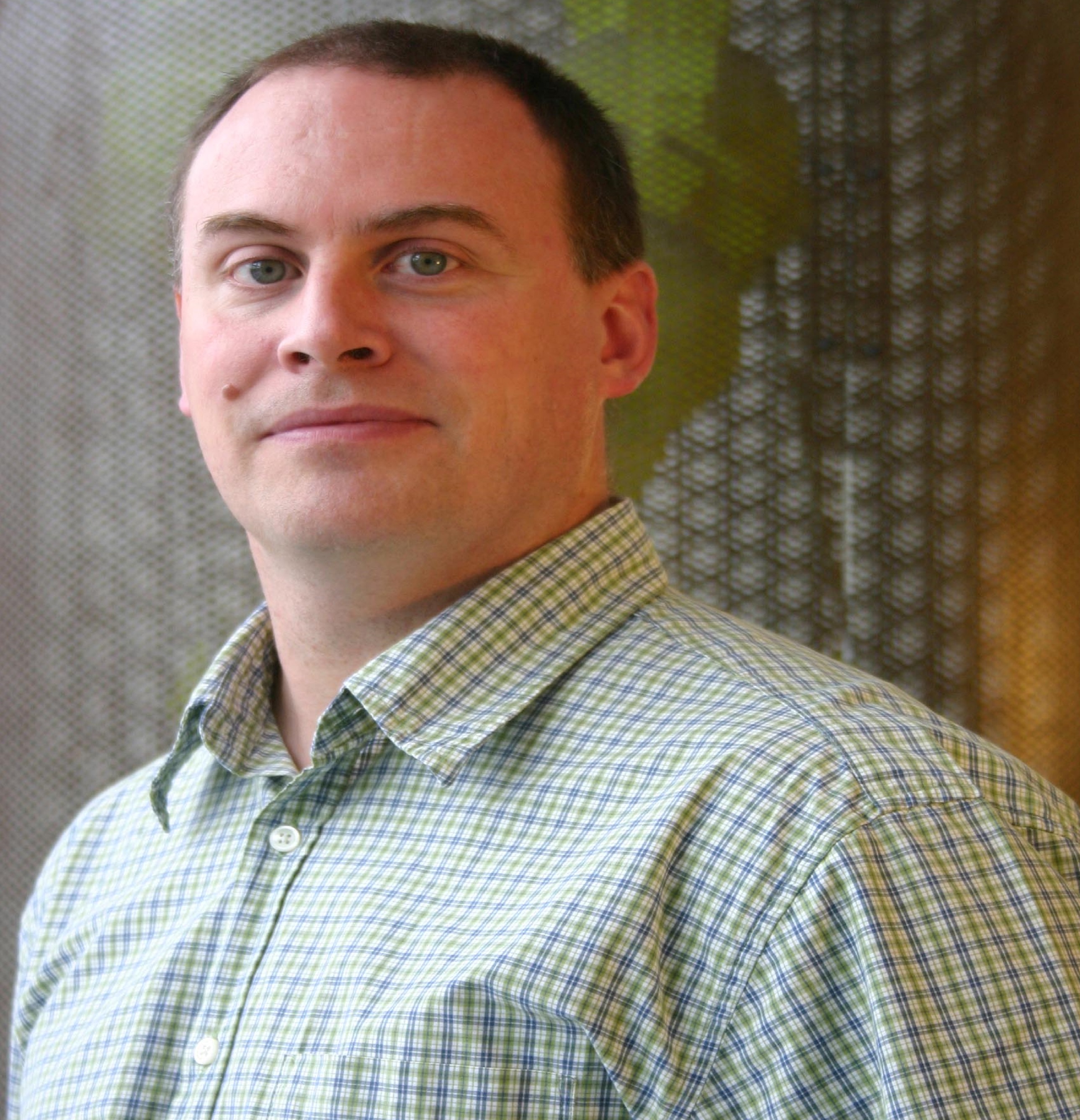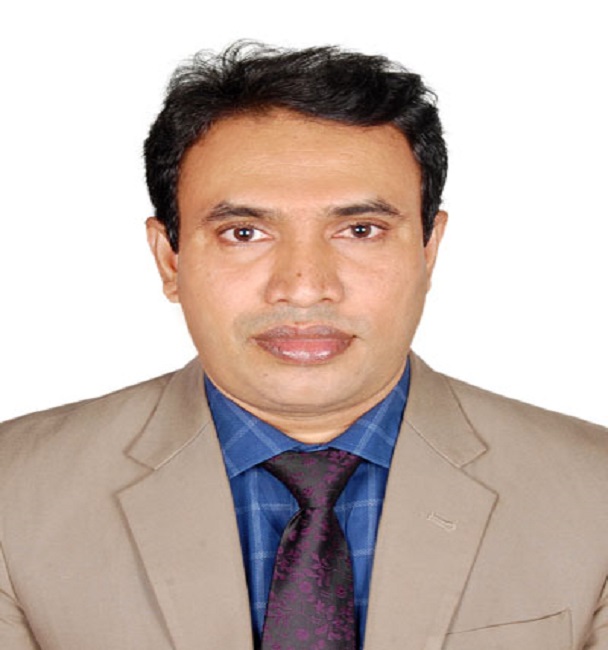Theme: Reduce and Recycle waste for Green Planet
Recycling Expo-2022
Dear participants,
It is my great pleasure to welcome you to the 17th International Expo on Recycling and Waste Management which will take place November 17-18, 2022 in Toronto, Canada. This year, the focus is on “Reduce and Recycle Waste for a Green Planet”.
I am very excited that the conference will include several topics such as materials recycling via chemical, mechanical, thermal and biological processes. You will have the opportunity to meet and discuss with experts in waste management coming from all over the planet. The Recycling Expo - 2022 will present several keynote and general sessions on the latest development related to research and development in the field of environmental aspects and issues from sustainable development and circular economy. Current data and regulations will be also presented to get a general overview of the current situation.
We are looking forward to meet all of you in Toronto for a successful event. Sincerely,
Prof. Denis Rodrigue
Department of chemical engineering
Université Laval
Quebec City, Canada
Recycling Expo - 2022 proudly invites contributors across the world to “17th International Expo on Recycling and Waste Management” during November 17-18, 2022 in Toronto, Canada which has prompt Keynote presentations, Oral talks, Poster presentations and Exhibitions. We are delighted to mention that it's the 17th International Expo on Recycling and Waste Management which can be held in a beautiful city of Toronto, Canada and hence we invite you all to attend and register.
17th International Expo on Recycling and Waste Management is principally based on the theme “Reduce and Recycle waste for Green Planet.’’ We warmly welcome all the participants of World’s leading Scientists, Researchers and students to attend the Convention. We offer a platform for young Researchers and Students to present their Research through oral Presentations through which they will develop a foundation for collaboration among young Researchers.
The Organizing committee aims at setting a platform for all the budding Scientists and Researchers to present their real-time work and share their views and aspects associated with the theme of the Conference. The Organizing committee is gearing up for an exciting and informative Conference program including plenary Lectures, Symposia, Workshops on a spread of topics, Poster presentations and various programs for participants from everywhere the globe.
Conference series LLC Ltd Organizes a Conference series of 1000+ Global Events inclusive of 300+ Conferences, 900+ Upcoming and former Symposiums and Workshops in USA, Europe & Asia with support from 1000 more Scientific societies and Publishes 700+ Open access Journals which contain over 30000 Eminent personalities, Reputed Scientists as Editorial board members.
The increasing trend in Recycling and Waste Management has increased. Recycling is a way of life. Once we've made that option to implement all the steps of recycling in our daily lives, and keep on with that choice every single day, recycling becomes habit to us. Sure there'll be lapses; it’s challenging for us creatures of habit. But no matter, we press on. Every small contribution to the recycling movement and therefore the initiative to guard the environment adds up to how our present Society eventually shapes our Nation’s and the Earth’s future. Waste Management or Waste disposal is all the activities and actions required to manage waste from its inception to its final disposal. Very one among us has a crucial role to play in reducing the amount of waste buried in landfills. Sorting waste so as to recycle or compost it are efficient means to reduce garbage.
1. Because our consuming habits have evolved considerably since the previous generation. We consume more intensely as new products are put on the market and consequently, we produce an ever increasing amount of waste. Two-third of that waste can be either recycled or composted.
2. Because waste ending up in landfills produces leachate and landfill biogas that are harmful for the water we drink and the air we breathe. Biogas contains mainly methane, a greenhouse gas that is 29% more powerful than carbon dioxide (CO2).
3. Because the Management of our waste is a clean way of living that shows how much we respect the people closest to us. Waste sorting decisions we make today will encourage our children to learn and influence the quality of life of future generations.
The Conference will provide a forum for exchange of recent Research results among Researchers from all across the globe focused on learning and sharing Knowledge upon use of recycling and for discussion of future challenges in implementation and application of latest Technologies and advances during this field. With members from round the world focused on learning about Recycling and Waste Management, this is often your single best opportunity to succeed in the most important assemblage of participants from all over the World. Conduct demonstrations, distribute information, meet with current and potential customers, make a splash with a new line, and receive name recognition at this 2-day event. Best Opportunity to Meet World-renowned speakers and to learn and share the most recent techniques, Theories and Technologies in the field of Recycling and Waste management. 17th International Expo on Recycling and Waste Management is an exciting opportunity to showcase the new Technology, the new products of your Company, and/or the service your Industry may offer to a broad International audience. It covers a lot of topics and it will be a nice platform to showcase their recent Researches on Recycling and Waste Management and other interesting topics.
- Research Scientists
- Recycling Associations
- Recycling Industries
- Recycling Researchers
- Business Entrepreneurs
- Environmental Academia’s
- Ecologists
- Green Energy Training Institutes
- Chemical Engineers
- Environmental Engineers
- Waste Management Associations
For more information: https://recycling.enggconferences.com/
Scientific Session: 01. Recycling – Reduce, Reuse and Recovery:
Recycling, recovery and reprocessing of waste materials to be used in new products. The simple phases in recycling are the series of waste materials, their processing or manufacture into new products, and therefore the purchase of these products, which can then themselves be recycled. Typical substances that are recycled encompass iron and metal scrap, aluminium cans, glass bottles, paper, wood, and plastics. The materials reused in recycling serve as substitutes for raw materials bought from such increasingly more scarce herbal assets as petroleum, herbal gas, coal, mineral ores, and trees. Recycling can help minimize the portions of strong waste deposited in landfills, which have become increasingly expensive. Recycling also reduces the air pollution of air, water, and land ensuing from waste disposal.
Related Conferences: Waste Management Conferences | Recycling Conferences | Recycling Expo | Recycling Meetings | Plastic Recycling Conferences | Climate Change Conferences | International Recycling and Waste Management Conferences
Scientific Session: 02. Waste Management Techniques:
Waste management methods contain the gathering, transportation, and recycling or disposal of waste. It encompasses management processes and resources that ensure the suited managing of waste products. Management of the resources entails the preservation of the waste transportation vehicles and therefore the dumping amenities in order that they suit the environmental rules as nicely as health codes. the most important goal of waste management is to stay far from the unfavorable results of wastes to human fitness and the natural environment. Waste substances can additionally be altogether kinds of matter, which are gaseous, liquids, radioactive matter, and solid. Consistent with waste management companies, there are several waste administration techniques. These strategies vary from one kingdom to a different one. It also differs from industrial and residential areas.
Related Conferences: Waste Management Conferences | Recycling Conferences | Recycling Expo | Recycling Meetings | Plastic Recycling Conferences | Climate Change Conferences | International Recycling and Waste Management Conferences
Scientific Session: 03. Environmental Chemistry:
Environmental chemistry is that the study of the sources, reactions, transport, and fates of chemical species involving all environmental spheres. Environmental Chemistry involves the A2Z of Chemistry that a person is linked to the present earth consisting of the Chemistry of his own body. It involves the determine about of the chemistry of air he breaths, the water he drinks, the soil from the place he gets his food. It also involves the chemistry of commercial Processes, products, till the produce is mingled again into nature in an eco-friendly way.
Related Conferences: Waste Management Conferences | Recycling Conferences | Recycling Expo | Recycling Meetings | Plastic Recycling Conferences | Climate Change Conferences | International Recycling and Waste Management Conferences
Scientific Session: 04. Hazardous Waste Management:
Hazardous-waste management, the gathering, treatment, and disposal of waste matter that, when improperly handled, can motive sizable harm to human health and safety or to the environment. Hazardous wastes can take the structure of solids, liquids, sludge’s, or contained gases, and that they are generated especially by way of chemical production, manufacturing, and different industrial activities. These are labelled on the foundation of their biological, chemical, and physical properties. These homes generate materials that are toxic, reactive, ignitable, corrosive, infectious, or radioactive.
Related Conferences: Waste Management Conferences | Recycling Conferences | Recycling Expo | Recycling Meetings | Plastic Recycling Conferences | Climate Change Conferences | International Recycling and Waste Management Conferences
Scientific Session: 05. E-Waste Recycling:
E-waste can be categorized on the basis of its composition and components. Ferrous and nonferrous metals, glass, plastics, pollutants, and different are the six categories of substances said for e-waste composition. Electronic waste is one among the unexpectedly developing environmental troubles of the world and in the other hand e-waste recycling helps slow down on production waste. The composition of e-waste is diverse, containing greater than 1,000 different toxic and non-toxic substances.
Related Conferences: Waste Management Conferences | Recycling Conferences | Recycling Expo | Recycling Meetings | Plastic Recycling Conferences | Climate Change Conferences | International Recycling and Waste Management Conferences
Scientific Session: 06. Marine Plastic Pollution:
The main sources of marine plastic are land-based, from cities and storm runoff, sewer overflows, seashore visitors, insufficient waste disposal and management, industrial activities, building, and unlawful dumping. Ocean-based plastic originates typically from the fishing industry, nautical things to undertake and do, and aquaculture. The foremost seen and worrying impacts of marine plastics are the ingestion, suffocation, and entanglement of plenty of marine species.
Related Conferences: Waste Management Conferences | Recycling Conferences | Recycling Expo | Recycling Meetings | Plastic Recycling Conferences | Climate Change Conferences | International Recycling and Waste Management Conferences
Scientific Session: 07. Waste Water Treatments:
Waste water treatments consists of a mixture of physical, chemical, and biological procedures and operations to get rid of solids, organic matter and, sometimes, nutrients from wastewater. Its remedy ambitions at reducing the contaminants to appropriate ranges to form the water protected for discharge again into the environment.
Related Conferences: Waste Management Conferences | Recycling Conferences | Recycling Expo | Recycling Meetings | Plastic Recycling Conferences | Climate Change Conferences | International Recycling and Waste Management Conferences
Scientific Session: 08. Paper Recycling:
Paper is one the fabric which will be easily recycled. The technique of waste paper recycling most frequently entails mixing used/old paper with water and chemicals to interrupt it down. Recycled paper is paper that won’t to be made up of paper and paper merchandise that has already been used and recovered. Recycling paper conserves natural resources, saves energy, reduces greenhouse fuel emissions, and maintains landfill space free for other sorts of trash that cannot be recycled.
Related Conferences: Waste Management Conferences | Recycling Conferences | Recycling Expo | Recycling Meetings | Plastic Recycling Conferences | Climate Change Conferences | International Recycling and Waste Management Conferences
Scientific Session: 09. Plastic Recycling:
Plastic recycling refers to the technique of convalescing waste or scrap plastic and reprocessing the materials into functional and useful products. Recycling of plastic is to reduce high rates of plastic pollution while placing less stress on virgin substances to produce brand new plastic products. This approach helps to conserve sources and diverts plastics from landfills or unintended locations such as oceans.
Related Conferences: Waste Management Conferences | Recycling Conferences | Recycling Expo | Recycling Meetings | Plastic Recycling Conferences | Climate Change Conferences | International Recycling and Waste Management Conferences
Scientific Session: 10. Industrial Waste Recycling:
Industrial waste is one among the foremost essential sources of raw substances for producing solid waste fuels like residue derived gasoline (RDF) and solid recovered gas (SRF). Recycling your industrial waste (hazardous or non-hazardous) presents many benefits to organization. Recycling reduces the charges you'd in the other case incur removing unused substances and by-products.
Related Conferences: Waste Management Conferences | Recycling Conferences | Recycling Expo | Recycling Meetings | Plastic Recycling Conferences | Climate Change Conferences | International Recycling and Waste Management Conferences
Scientific Session: 11. Chemical Waste Recovery:
Chemical waste recovery system covers the safe disposal of chemical wastes whilst imposing industry great practice in wastes. Chemical waste is a waste that is made from dangerous chemical compounds in general produced via giant factories. A chemical hazardous waste is a solid, liquid, or gaseous fabric that shows a hazardous Characteristic.
Related Conferences: Waste Management Conferences | Recycling Conferences | Recycling Expo | Recycling Meetings | Plastic Recycling Conferences | Climate Change Conferences | International Recycling and Waste Management Conferences
Scientific Session: 12. Remote Sensing and Satellite Technology:
Remote Sensing refers to the science of identification of Earth surface features and estimation of their biophysical properties using electromagnetic radiation as a medium of interaction. Satellite technology in an equatorial circular orbit at a distance is approximately 42,164km from the Earth station, i.e. approximately 35,787km above mean sea level, which has a period equal to the Earth’s rotation on its axis and would remain geostationary over the same point on the Earth equator.
Related Conferences: Waste Management Conferences | Recycling Conferences | Recycling Expo | Recycling Meetings | Plastic Recycling Conferences | Climate Change Conferences | International Recycling and Waste Management Conferences
Scientific Session: 13. Bio- Electrochemical Treatment Systems:
Bio-Electrochemical Treatment Systems use microorganisms to catalyze distinct electrochemical reactions, as properly as generating electrical strength from wastes, the era of many extraordinary chemical products or biofuels, and the removal of organic or inorganic compounds from water flows. Groundwater, as the foremost aid of consuming water, is normally characterised through low conductivity (less than 1 MS cm-1. The improvement of Bio-Electrochemical treatment device requires knowledge in electrochemistry, materials, sciences, microbiology, engineering, and other fields.
Related Conferences: Waste Management Conferences | Recycling Conferences | Recycling Expo | Recycling Meetings | Plastic Recycling Conferences | Climate Change Conferences | International Recycling and Waste Management Conferences
Scientific Session: 14. Bioremediation:
Bioremediation is the procedure of the usage of organisms to neutralize or do away with infection from waste. It is very vital to apprehend that this form of waste remediation makes use of no toxic chemicals, though it may also use an organism that can be harmful beneath positive circumstances. It is turning into the technological know-how of desire for the remediation of many contaminated environments, specifically sites contaminated with petroleum hydrocarbons. Bioremediation stimulates the growth of certain microbes that use contaminants as a supply of food and energy.
Related Conferences: Waste Management Conferences | Recycling Conferences | Recycling Expo | Recycling Meetings | Plastic Recycling Conferences | Climate Change Conferences | International Recycling and Waste Management Conferences
Scientific Session: 15. Energy from Organic Waste:
The organic waste from breweries, coffee shops, dairy farms, and slaughterhouses can supply energy to hundreds of typical homes each day. Proper management and recycling of huge volumes of food waste are required to reduce its environmental burdens and to minimize risks to human health. Food waste is indeed an untapped resource with great potential for energy production. Utilization of food waste for energy conversion currently represents a challenge.
Related Conferences: Waste Management Conferences | Recycling Conferences | Recycling Expo | Recycling Meetings | Plastic Recycling Conferences | Climate Change Conferences | International Recycling and Waste Management Conferences
Scientific Session: 16. Environmental impact Assessment:
The objective of Environmental Impact Assessment is to rectify and evaluate the potential impacts of development and projects on the environmental system.
The objective of Environmental Impact Assessment is
- To identify, predict and classify the economic, environmental and social impact of development activities
- To provide information on the environmental consequences for decision making and
- To promote environmentally sound and sustainable development through the identification of appropriate alternatives and mitigation measures.
Related Conferences: Waste Management Conferences | Recycling Conferences | Recycling Expo | Recycling Meetings | Plastic Recycling Conferences | Climate Change Conferences | International Recycling and Waste Management Conferences
Scientific Session: 17. Microbial Fuel Cell Technology:
A microbial fuel cell (MFC) is a bio-electrochemical machine that harnesses the strength of breathing microbes to convert organic substrates directly into electrical energy. At its core, the MFC is a fuel cell, which transforms chemical power into electrical energy using oxidation reduction reactions. A microbial fuel cell made with collaboration of micro fluids, micro/Nano technology, and bioenergy.
Related Conferences: Waste Management Conferences | Recycling Conferences | Recycling Expo | Recycling Meetings | Plastic Recycling Conferences | Climate Change Conferences | International Recycling and Waste Management Conferences
Scientific Session: 18. Waste Treatment Technologies:
There are large sorts of one-of-a-kind waste treatment technologies for the disposal, recycling, storage, or strength recuperation from specific waste types. Each kind has its personal associated of waste management. Relatively easy waste treatment technologies are often designed to grant low value sanitation and environmental protection while presenting extra advantages from the reuse of resources. These technologies use natural aquatic and terrestrial systems.
Related Conferences: Waste Management Conferences | Recycling Conferences | Recycling Expo | Recycling Meetings | Plastic Recycling Conferences | Climate Change Conferences | International Recycling and Waste Management Conferences
Scientific Session: 19. Waste Processing Industries:
The progressive development of the waste processing industry derives directly from the rapid progress in packaging industry. In addition to the inevitable scrap or reject production loads of in-process waste is produced in packaging industry.
Related Conferences: Waste Management Conferences | Recycling Conferences | Recycling Expo | Recycling Meetings | Plastic Recycling Conferences | Climate Change Conferences | International Recycling and Waste Management Conferences
The global waste management market size is expected to reach $484.9 billion by 2025 from $303.6 billion in 2017, growing at a CAGR of 6.0% from 2018 to 2025. Waste management is the collection, transportation, and disposable of garbage, sewage, and other waste products. It involves treatment of solid waste and disposal of products and substances in a safe and efficient manner.
The Recycling Facilities industry in Canada operates material recovery facilities that separate and type recyclable materials from nonhazardous waste streams (i.e. garbage). Operators also sort commingled recyclable materials, like paper, plastics, used beverage cans, and metals into distinct categories. Revenue for the Waste Treatment and Disposal Services industry in Canada has been adjusted from growth of 1.8% to a decline of 8.8% in 2020, due to commercial activity declining and the world price of crude oil plummeting, hindering the energy market.
Average industry growth 2016–2021:
The Recycling Facilities industry in Canada has experienced a solid expansion over much of the five years to 2020, as demand for recycling continues to grow. However, some headwinds have constrained industry growth during the period. Falling oil prices helped diminish downstream industrial activity, shrinking demand from a number of the industry's key markets. Additionally, falling oil prices have led to goods made using oil-based inputs like plastic become comparably more competitive in comparison with recycled goods, which likely helped to constrain demand. Additionally, the COVID-19 (coronavirus) pandemic has increased economic uncertainty, reducing consumption and thus, recyclable material.
Average industry growth 2020-2025:
Growth for the Recycling Facilities industry in Canada will likely accelerate over the five years. Continued growth in environmental consciousness will fuel new initiatives to promote recycling. For example, the continued effort to implement the Policy on Green Procurement (PGP) will further increase the demand for recycled goods among businesses and consumers. More importantly, the long-term growth of the population will have a significant effect on the recycling industry, as larger waste levels translate into more recycling. Likewise, industry revenue is expected to grow on account of the rising demand for recycled materials.
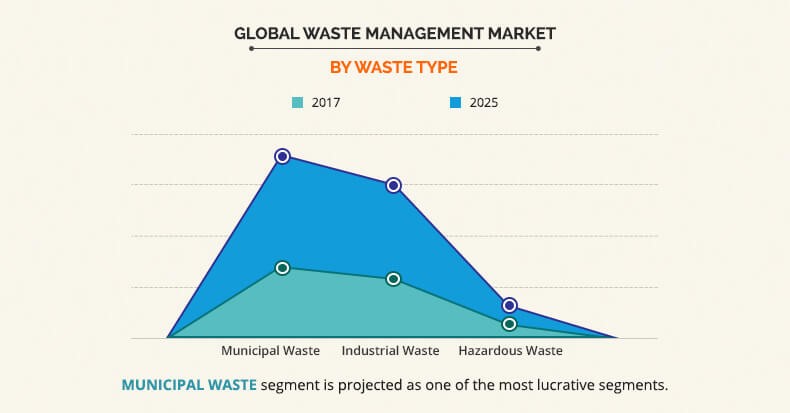
Key Benefits for Waste Management Market:
The report presents an extensive analysis of the current & emerging market trends and dynamics in the global waste management market.
In-depth analysis is conducted by constructing market estimations for the key segments between 2017 and 2025.
Extensive analysis of the market is conducted by following key product positioning and monitoring of the top competitors within the market framework.
A comprehensive analysis of all regions is provided to determine the prevailing opportunities in these geographies.
Key players within the waste management market are profiled in this report, and their strategies are analysed thoroughly, which help to understand the competitive outlook of the global market.
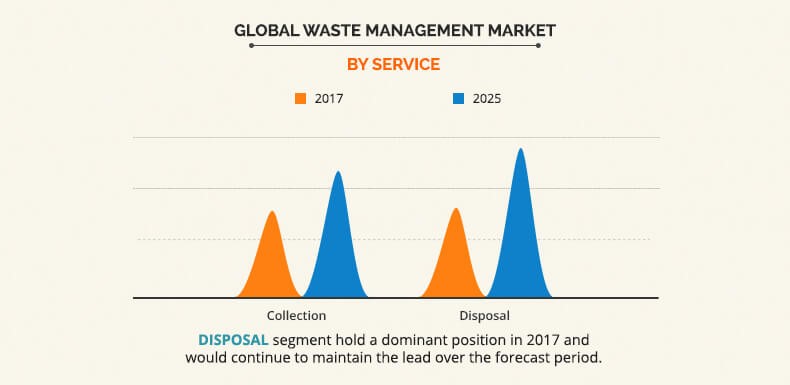
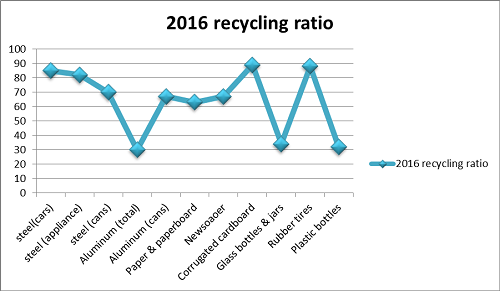
Amount of E-waste recycled /reused and in storage adjusted sales by year, world market: 2010-2025
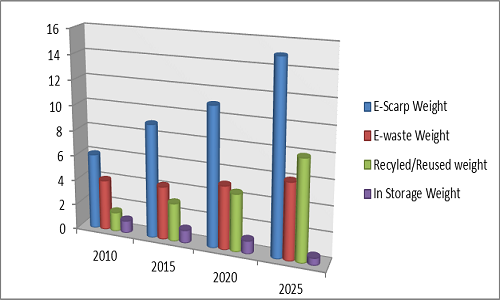
Association of Canada Recyclers Major Recycling and Waste Management Associations in Canada:
- Canadian Association of Recycling Industries
- Canadian Institute for Business and the Environment
- Canadian Plastics Industry Association
- Citizens' Network on Waste Management
- City of Toronto Solid Waste Management Services
- Ontario Automotive Recyclers Association
- Ontario Environment Industry Association
- Ontario Waste Management Association (OWMA)
- Recycling Council of British Columbia (RCBC)
- Recycling Council of Alberta (RCA)
- Waddington Resource Management
17th World Congress and Expo on Recycling was hosted by the Conference Series LLC LTD. It was actually planned at Amsterdam, Netherlands during November 09-10, 2020 with the theme “Recycling: Creating a Sustainable World” but we ended it as a webinar due to the pandemic situation and it was organized successfully. The Webinar marked its start by an opening ceremony which included introduction by the Honorable Guest and the Members of Keynote Forum: Marisa Soares Borges (Brazil), Muscolo Adele (Italy), Szabolcs Fogarasi (Romania), Shabnam S. Lutafali (Kyrgyzstan), Muscolo Adele (Italy), Filomena Compagno (Italy), Esher Hsu (Taiwan), Dickson Y.S. Yan (Hong Kong), Fabian Diaz (Germany), Li Peng (China). Scientific sessions discussed during webinar are about Food Waste Recycling, Agriculture Waste Recycling, Rubber Recycling, Metal and Plastic Recycling, Circulatory Economy, Recycling Market, and Thermal Waste Recovery.
9th World Convention on Waste Recycling and Reuse was hosted by the Conference Series LLC LTD. It was planned at Singapore during March 11-12, 2019 with the theme “Never Refuse to Reuse” was organized successfully. The Conference marked its start by an opening ceremony which included introduction by the Honorable Guest and the Members of Keynote Forum: Takashi Ano (Japan), Hiroshan Hettiarachchi (Germany), Muhammad Usman (Pakistan), Amelia Zielinska (Poland), Florence Barbara Awino (Australia), Valery S. Petrosyan (Russia), Mohammad Hadi Dehghani (Iran), Song Zhou (Australia), Desmond Ato Koomson (China). Scientific sessions discussed during conference are about Biomass and Bio energy, Food and Catering waste recycling, Chemical waste recycling, E-waste recycling, and Plastic waste recycling.
11th World Congress and Expo on Recycling was hosted by the Conference Series LLC LTD. It was planned at Edinburgh, Scotland during June 13-14, 2019 with the theme “Recycling: Creating a Sustainable World” was organized successfully. The Conference marked its start by an opening ceremony which included introduction by the Honorable Guest and the Members of Keynote Forum: Marisa Soares Borges (Brazil), Muscolo Adele (Italy), Szabolcs Fogarasi (Romania), Shabnam S. Lutafali (Kyrgyzstan), Md. Abdul Jalil (Bangladesh), Raaginii Jaain (India), Brajendra Mishra (USA), Annalina Lombardi (Italy), Nazan Koluman Darcan (Turkey), Linda Johnson-Bell (UK). Scientific sessions discussed during conference are about Sustainable Energy Policy, Petrochemical and Oil Recycling, Bio-PlasticsGreen Economy, and Recycling Business.
10th World Convention on Recycling and Waste Management was hosted by the Conference Series LLC LTD. It was planned at Sydney, Australia during October 21-22, 2019 with the theme “Reduce and Recycle waste for sustainable waste management” was organized successfully. The Conference marked its start by an opening ceremony which included introduction by the Honorable Guest and the Members of Keynote Forum: Carmen Gaidau (Romania), Mohammad Inamul Haque (Bangladesh), Jagbir Singh (India), Francisco Augusto Pereira Dos Santos (Brazil), Muktar Muhammad (Nigeria), Mohd Moiz Khan (India), Konstantina Sotiriou (UK), Adina Anghelescu Hakala (Finland), Sinae Park (South Korea), Konstantina Sotiriou (UK). Scientific sessions discussed during conference are about Bio- Energy from Waste, Sustainable waste Management, Environmental impact Assessment, Remote Sensing and Satellite Technology, and Microbial Fuel cell Technology.
7th World Convention on Waste Recycling and Reuse was hosted by the Conference Series LLC LTD. It was planned at Tokyo, Japan during May 16-17, 2018 with the theme “Why WASTE it?? Let’s SORT it!!” was organized successfully. The Conference marked its start by an opening ceremony which included introduction by the Honorable Guest and the Members of Keynote Forum: Katsutoshi Inoue (Japan), Winnie SO Wing-mui (Hong Kong), Annemiek Verrips (Netherlands), Fernando Coelho (UK), Andrzej L Wasiak (Poland), Indra prasad dahal (Nepal), Nutthiwut Boonsa-ard (Thailand), Imumolen Christopher I (UK). Scientific sessions discussed during conference are about Chemical waste recycling, E-waste recycling, Plastic waste recycling, Paper recycling, Rubber recycling, Industrial waste recycling, and Domestic waste management.
Conference Highlights
- Recycling – Reduce, Reuse and Recovery
- Waste Management Techniques
- Environmental Chemistry
- Hazardous Waste Management
- E-Waste Recycling
- Marine Plastic Pollution
- Waste Water Treatments
- Paper Recycling
- Plastic Recycling
- Industrial Waste Recycling
- Chemical Waste Recovery
- Remote Sensing and Satellite Technology
- Bio- Electrochemical Treatment Systems
- Bioremediation
- Energy from Organic Waste
- Environmental impact Assessment
- Microbial Fuel Cell Technology
- Waste Treatment Technologies
- Waste Processing Industries
To share your views and research, please click here to register for the Conference.
To Collaborate Scientific Professionals around the World
| Conference Date | November 17-18, 2022 | ||
| Sponsors & Exhibitors |
|
||
| Speaker Opportunity Closed | Day 1 | Day 2 | |
| Poster Opportunity Closed | Click Here to View | ||
Useful Links
Special Issues
All accepted abstracts will be published in respective Our International Journals.
Abstracts will be provided with Digital Object Identifier by


